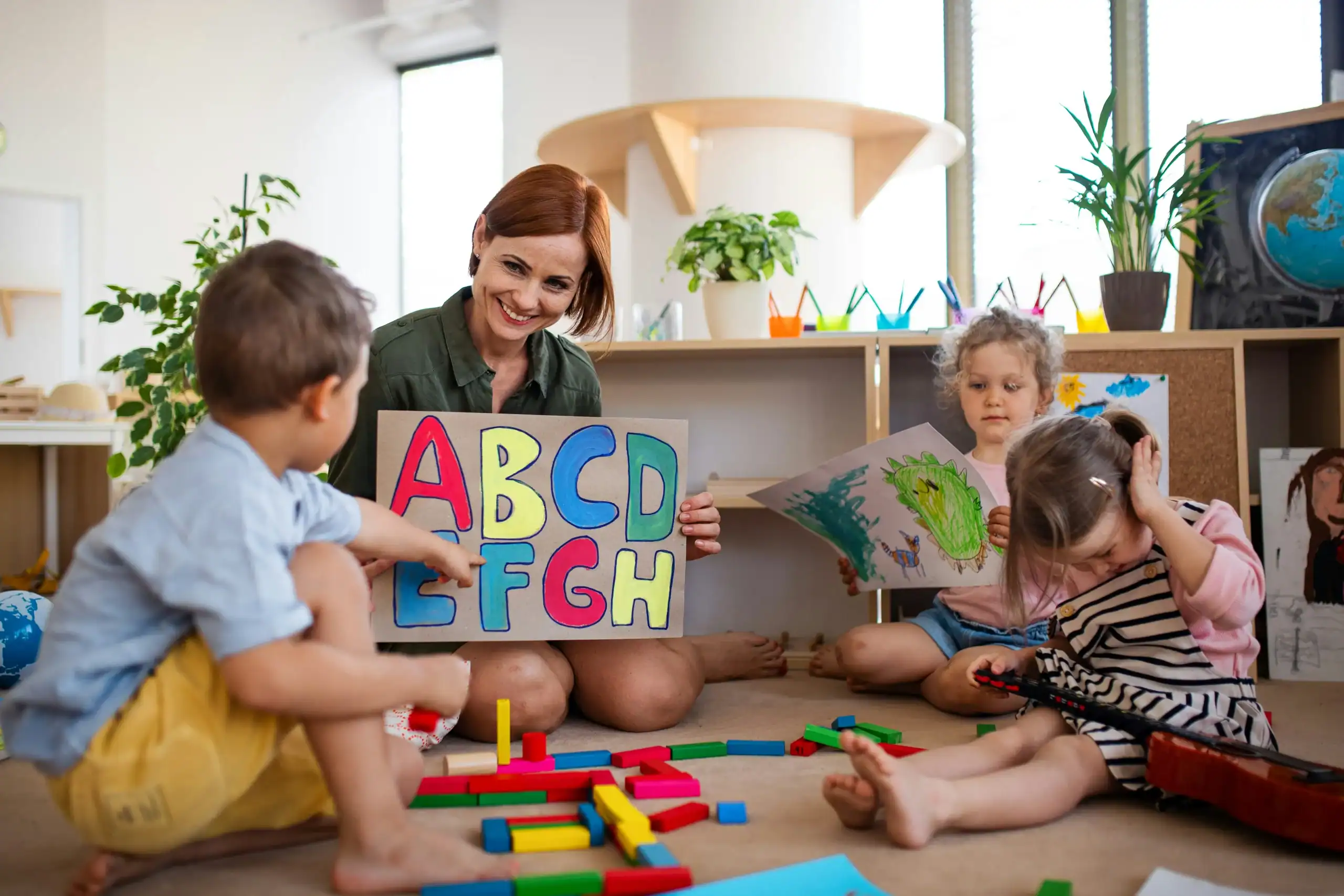Spotting the early signs of neurodivergence can make a big difference for parents who want to support their special needs child. Roughly 15% to 20% of people worldwide display traits of neurodivergence, shaped by both genetic and environmental influences. This often means noticing little differences in how a child communicates, plays, or reacts around them.
These early clues may seem confusing at first, but many times they are simply part of how a child’s brain works differently. Recognizing these differences early can help reduce worry and will allow parents to respond with patience, understanding, and confidence.
In this guide, we’ll walk through some of the most common signs that parents should pay attention to. These signs are not reasons to panic but gentle signals that a child may benefit from extra support. Knowing what to look for helps families feel more prepared and less overwhelmed.
Visit The Autism Voyage for more simple, practical tips and resources specifically for parents managing a special needs family.
Table of contents:

Understanding Neurodivergence
Every child grows at their own pace, but some show unique ways of thinking and learning. Parents may notice early signs of being neurodivergent, such as differences in play, focus, or communication. These aren’t flaws but natural differences in how brains work. Recognizing this early helps parents better support their child.
It’s important to understand the difference between neurotypical vs neurodivergent development. While one path may seem more common, both bring value and strengths. Noticing this behavioral can guide families toward resources and support.
Want more real-life tips like this? Join our newsletter, it’s free, helpful, and made for parents like you.
What Does “Neurodivergent” Mean?
Being neurodivergent means a brain works differently than typical, showing up in learning, attention, or social interactions. For children, these aren’t flaws but individuality. Recognizing differences helps parents and celebrate strengths.
Key Points for Parents:
- Unique Brain Wiring – Neurodivergence reflects natural differences in how the brain works.
- Not a Problem – Being neurodivergent is not about being broken or flawed.
- Everyday Differences – It may show up in communication, focus, or learning.
- Part of Identity – It is simply part of who the child is.
- Strengths Included – Neurodivergence often comes with creativity, focus, and resilience.

Guide for Writing a Letter of Intent for Families with Special Needs
This guide provides you with essential tips for crafting a Letter of Intent. Perfect for families navigating the complexities of planning for a special needs future.
Neurodivergence vs. Neurotypical Development
The difference between neurotypical vs neurodivergent development shows up in daily life. Neurotypical children may reach milestones in order, while neurodivergent children achieve them differently. Both paths are valid and deserve respect.
Key Points for Parents:
- Different Timelines – Milestones may appear earlier or later.
- Learning Styles – Children may prefer visual, auditory, or movement-based learning.
- Play Patterns – Some children play socially, others more independently.
- Behavioral Differences – Responses to change or stress may vary.
- Equal Value – Both neurotypical and neurodivergent growth paths are valid.
Why Language and Perspective Matter
The words parents use deeply affect how children see themselves. Negative labels like “difficult” can harm confidence, while encouraging words build self-esteem. A positive perspective helps families shift focus from struggles to possibilities and strengths.
Key Points for Parents:
- Words Have Power – Language can hurt or heal.
- Labels Matter – Negative labels may harm confidence.
- Positive Framing – Highlight strengths instead of only challenges.
- Shift Perspective – Focus on what’s possible, not just what’s hard.
- Encouragement Builds Resilience – Supportive words help children feel valued.

Common Signs of Neurodivergence
Parents often notice the signs of a neurodivergent child in everyday routines like school, play, or family life. These signs may look small but can show up in important ways. Early signals often involve communication, learning patterns, or how a child connects with others. Recognizing them can guide parents toward support and understanding.
The signs of neurodivergent in adults may also mirror what parents see in children. While kids show it through play or school challenges, adults may notice it at work, social settings, or emotional patterns. Paying attention to these can bring peace of mind. Families who notice these signs early are better equipped to help their children and themselves.
Here are five common signs explained simply for families:
- Trouble with Eye Contact
Some children avoid eye contact, and it doesn’t always mean shyness. For neurodivergent kids, it can be about feeling overwhelmed or uncomfortable. - Intense Focus on Interests
A child may talk about one subject for hours. This deep focus shows passion and can become a strength when encouraged properly. - Challenges in Social Settings
Many neurodivergent kids struggle with group play. They may prefer being alone or need extra time to learn social rules. - Sensory Sensitivities
Loud sounds, scratchy clothes, or bright lights may bother them. Sensory overload can lead to meltdowns, so parents often notice these reactions early. - Unique Learning Styles
Some children learn better with visuals, while others prefer movement. Recognizing different learning styles helps parents support education without unnecessary stress.
Review special needs support services to explore some of our personalized solutions for your special needs family.
Everyday Life Impact of Neurodivergence
The signs of a neurodivergent child often appear in everyday routines like school, play, or family time. These differences may feel small but can affect social skills, emotions, and learning. Many parents also see similar patterns in adults. Understanding daily impact helps families respond with patience and care.
Daily signs may include sensory challenges, learning differences, or stronger reactions to stress. These patterns can make daily life feel different or difficult but not less valuable. Recognizing them helps parents find balance, support, and hope.
Want to learn more about real-life strategies? Visit penguin pebbling for support to your family's special needs.
How Signs Show Up in Children vs. Adults
Neurodivergence appears differently across ages. Children may show it through play, school struggles, or communication, while adults notice it at work, relationships, or emotions. Recognizing these patterns shows neurodivergence evolves over time.
Key Points for Parents:
- Play Differences – Kids may prefer solo or repetitive play.
- School Challenges – Learning or focus struggles often show up in classrooms.
- Communication Styles – Children may use unique ways to express themselves.
- Work Habits – Adults may struggle with organization or multitasking.
- Social Preferences – Adults may choose small groups or avoid crowds.
Overlap With Other Conditions (ADHD, OCD, Anxiety)
Neurodivergence often overlaps with ADHD, OCD, or anxiety, making it harder for parents to separate. A child may struggle with focus, repetitive behaviors, or worry together. Seeing the whole child, not just a diagnosis, helps parents give support.
Key Points for Parents:
- Shared Symptoms – Focus or behavior issues may look similar across conditions.
- ADHD Overlap – Trouble sitting still or focusing may appear.
- OCD Overlap – Repetitive habits can be mistaken for other struggles.
- Anxiety Overlap – Worries may cause meltdowns or shutdowns.
- Whole-Child View – Support works best when seeing the entire child.
Strengths Often Overlooked
Families often focus on struggles instead of strengths. Many neurodivergent children show creativity, problem-solving skills, and passions that grow into lifelong talents. Encouraging strengths builds confidence and shifts family perspective toward hope.
Key Points for Parents:
- Creativity Shines – Many children excel in art or imagination.
- Problem-Solving – Different thinking helps children find unique solutions.
- Passionate Focus – Interests can grow into valuable skills.
- Resilience – Overcoming challenges builds strength and adaptability.
- Confidence Boost – Celebrating wins helps children feel valued.

What To Do If You Notice the Signs
Parents who start noticing the early signs of being neurodivergent may feel unsure about what to do next. It can be overwhelming at first, but small steps make the journey easier. Children don’t need parents to have all the answers immediately. They just need steady support, patience, and encouragement.
It also helps to remember that there isn’t one “right” way to grow up. Comparing neurotypical vs neurodivergent paths can cause stress, but both have strengths and challenges. Families can learn to celebrate their child’s differences while giving them the tools to thrive. With the right approach, parents can feel more confident moving forward.
Here are five helpful steps parents can take:
- Talk With Teachers
Teachers spend time with children daily and can share helpful observations. Their input often highlights patterns parents may not see at home. - Observe Daily Routines
Notice how your child reacts in play, meals, or transitions. Small differences can give useful clues about their needs. - Seek Professional Guidance
Pediatricians, therapists, or specialists can give clarity. Professional advice helps families feel secure about the next steps. - Build Family Support
Share your concerns with close family members. A strong support circle makes the journey less stressful. - Connect With Resources
Use tools like parent groups or The Autism Voyage blog. Shared knowledge gives parents comfort and confidence.
Have questions or need help in financial clarity journey? Reach out to us, we’re here for you every step of the way.
Building Community and Accessing Resources with The Autism Voyage
Community gives parents strength and clarity when navigating neurodivergence daily challenges. The Autism Voyage offers resources, planning tools, and shared stories to help families feel less alone. Parents can find answers and reassurance in connecting with others who truly understand.
By joining supportive networks, families learn strategies that fit their child’s unique needs. Resources like guides, blogs, and newsletters build confidence. This kind of support helps parents shift from uncertainty to feeling prepared and hopeful.
Key Takeaway:
- Early signs matter
Spotting early signs helps families respond with care. These signals are gentle reminders, not panic triggers. Early recognition gives children support, patience, and tools to thrive. - Every child develops differently
Children grow in unique ways, and milestones don’t always match. Some show different play, learning, or communication styles. Recognizing differences reduces worry and helps families understand. - Strengths are just as important as struggles
Families may notice struggles first, but strengths matter. Neurodivergent children shine through creativity, problem-solving, or focus. Highlighting gifts builds confidence and shifts attention toward possibilities. - Community support makes the journey easier
Families don’t have to navigate this journey alone. Community support builds reassurance and provides practical strategies. Resources like The Autism Voyage help parents feel understood, supported, and prepared. - Small steps make a big difference
Parents don’t need every answer at once. Small actions like talking with teachers or noticing patterns make progress. Steady steps build momentum and increase family confidence.
